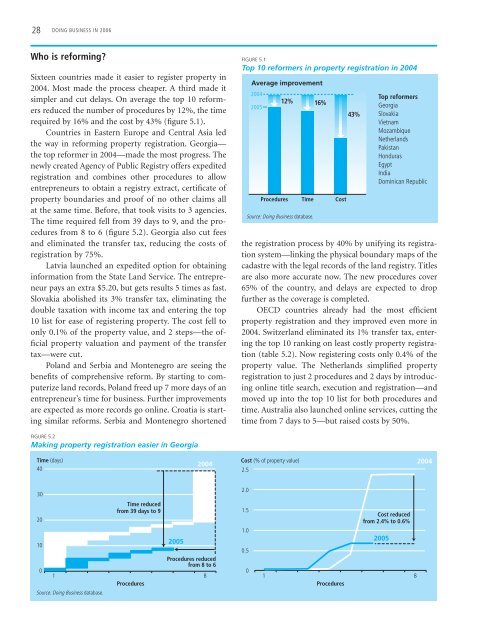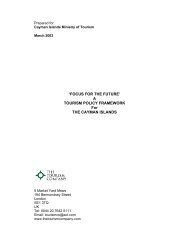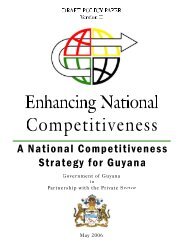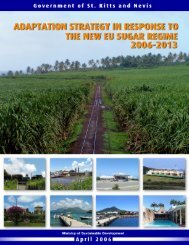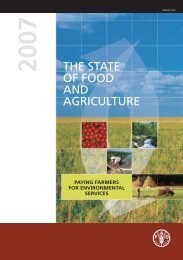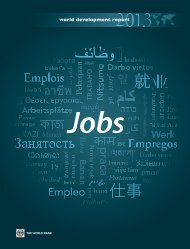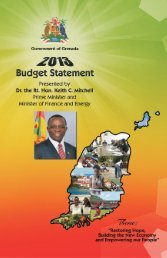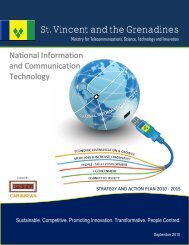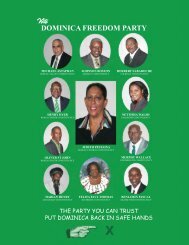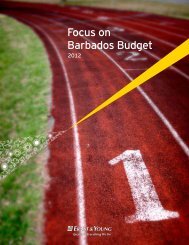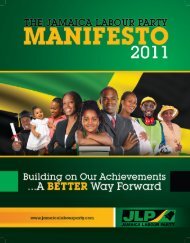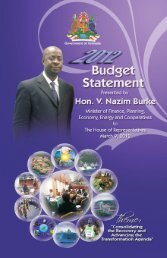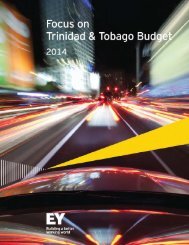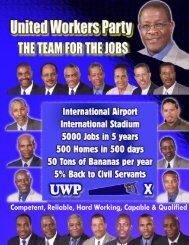Creating
Doing Business in 2006 -- Creating Jobs - Caribbean Elections
Doing Business in 2006 -- Creating Jobs - Caribbean Elections
You also want an ePaper? Increase the reach of your titles
YUMPU automatically turns print PDFs into web optimized ePapers that Google loves.
28 DOING BUSINESS IN 2006<br />
Who is reforming?<br />
Sixteen countries made it easier to register property in<br />
2004. Most made the process cheaper. A third made it<br />
simpler and cut delays. On average the top 10 reformers<br />
reduced the number of procedures by 12%, the time<br />
required by 16% and the cost by 43% (figure 5.1).<br />
Countries in Eastern Europe and Central Asia led<br />
the way in reforming property registration. Georgia—<br />
the top reformer in 2004—made the most progress. The<br />
newly created Agency of Public Registry offers expedited<br />
registration and combines other procedures to allow<br />
entrepreneurs to obtain a registry extract, certificate of<br />
property boundaries and proof of no other claims all<br />
at the same time. Before, that took visits to 3 agencies.<br />
The time required fell from 39 days to 9, and the procedures<br />
from 8 to 6 (figure 5.2). Georgia also cut fees<br />
and eliminated the transfer tax, reducing the costs of<br />
registration by 75%.<br />
Latvia launched an expedited option for obtaining<br />
information from the State Land Service. The entrepreneur<br />
pays an extra $5.20, but gets results 5 times as fast.<br />
Slovakia abolished its 3% transfer tax, eliminating the<br />
double taxation with income tax and entering the top<br />
10 list for ease of registering property. The cost fell to<br />
only 0.1% of the property value, and 2 steps—the official<br />
property valuation and payment of the transfer<br />
tax—were cut.<br />
Poland and Serbia and Montenegro are seeing the<br />
benefits of comprehensive reform. By starting to computerize<br />
land records, Poland freed up 7 more days of an<br />
entrepreneur’s time for business. Further improvements<br />
are expected as more records go online. Croatia is starting<br />
similar reforms. Serbia and Montenegro shortened<br />
<br />
<br />
<br />
<br />
<br />
<br />
<br />
<br />
<br />
<br />
<br />
<br />
<br />
<br />
<br />
<br />
<br />
<br />
<br />
<br />
the registration process by 40% by unifying its registration<br />
system—linking the physical boundary maps of the<br />
cadastre with the legal records of the land registry. Titles<br />
are also more accurate now. The new procedures cover<br />
65% of the country, and delays are expected to drop<br />
further as the coverage is completed.<br />
OECD countries already had the most efficient<br />
property registration and they improved even more in<br />
2004. Switzerland eliminated its 1% transfer tax, entering<br />
the top 10 ranking on least costly property registration<br />
(table 5.2). Now registering costs only 0.4% of the<br />
property value. The Netherlands simplified property<br />
registration to just 2 procedures and 2 days by introducing<br />
online title search, execution and registration—and<br />
moved up into the top 10 list for both procedures and<br />
time. Australia also launched online services, cutting the<br />
time from 7 days to 5—but raised costs by 50%.


